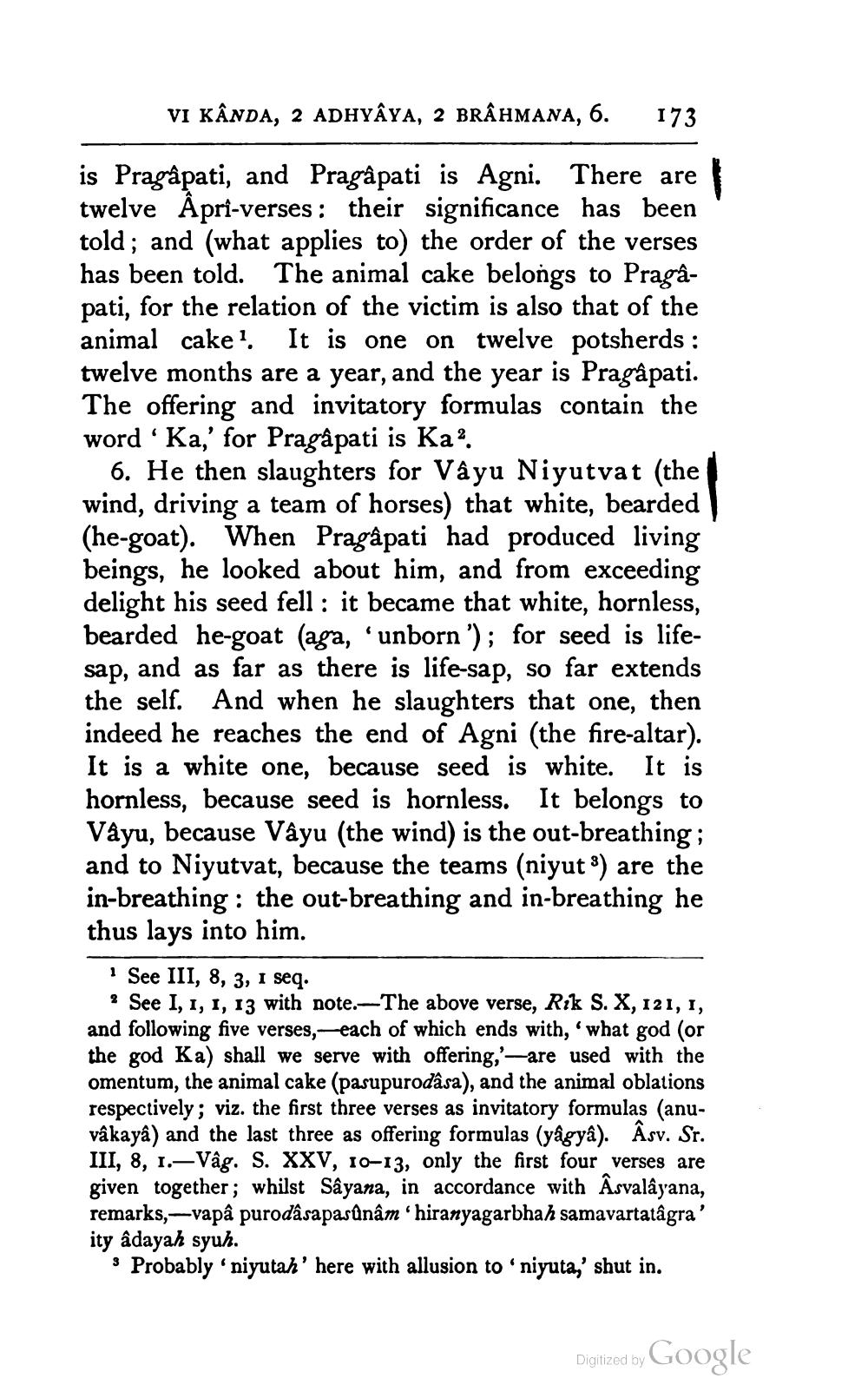________________
VI KANDA, 2 ADHYAYA, 2 BRÂHMANA, 6.
173
is Pragâpati, and Pragâpati is Agni. There are twelve Apri-verses: their significance has been told; and (what applies to the order of the verses has been told. The animal cake belongs to Pragapati, for the relation of the victim is also that of the animal cake!. It is one on twelve potsherds : twelve months are a year, and the year is Pragâpati. The offering and invitatory formulas contain the word 'Ka,' for Pragâpati is Kaa.
6. He then slaughters for Vayu Niyutvat (the wind, driving a team of horses) that white, bearded | (he-goat). When Pragâpati had produced living beings, he looked about him, and from exceeding delight his seed fell : it became that white, hornless, bearded he-goat (aga, 'unborn '); for seed is lifesap, and as far as there is life-sap, so far extends the self. And when he slaughters that one, then indeed he reaches the end of Agni (the fire-altar). It is a white one, because seed is white. It is hornless, because seed is hornless. It belongs to Våyu, because Vayu (the wind) is the out-breathing; and to Niyutvat, because the teams (niyut 3) are the in-breathing : the out-breathing and in-breathing he thus lays into him.
See III, 8, 3, 1 seq. . See I, 1, 1, 13 with note.-The above verse, Rik S. X, 121, 1, and following five verses, each of which ends with, what god (or the god Ka) shall we serve with offering,'—are used with the omentum, the animal cake (pasupurodâsa), and the animal oblations respectively; viz. the first three verses as invitatory formulas (anuvâkaya) and the last three as offering formulas (yâgyâ). Âsv. Sr. III, 8, 1.—Vâg. S. XXV, 10–13, only the first four verses are given together; whilst Sâyana, in accordance with Asvalâyana, remarks,-vapâ purodâ sapasûnâm'hiranyagarbhah samavartatâgra' ity âdayah syuh.
3 Probably 'niyutah' here with allusion to 'niyuta,' shut in.
Digitized by Google




